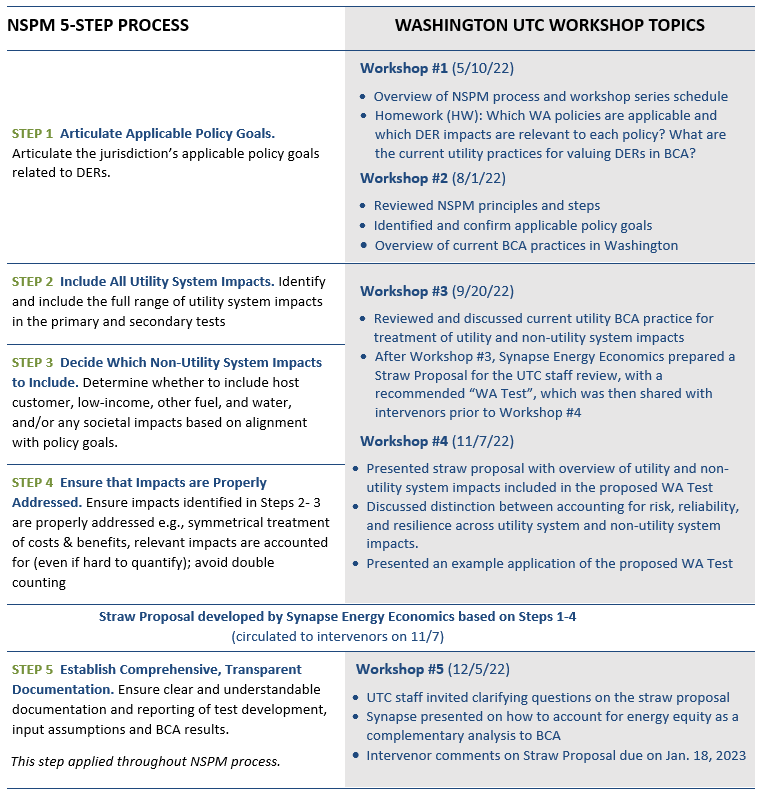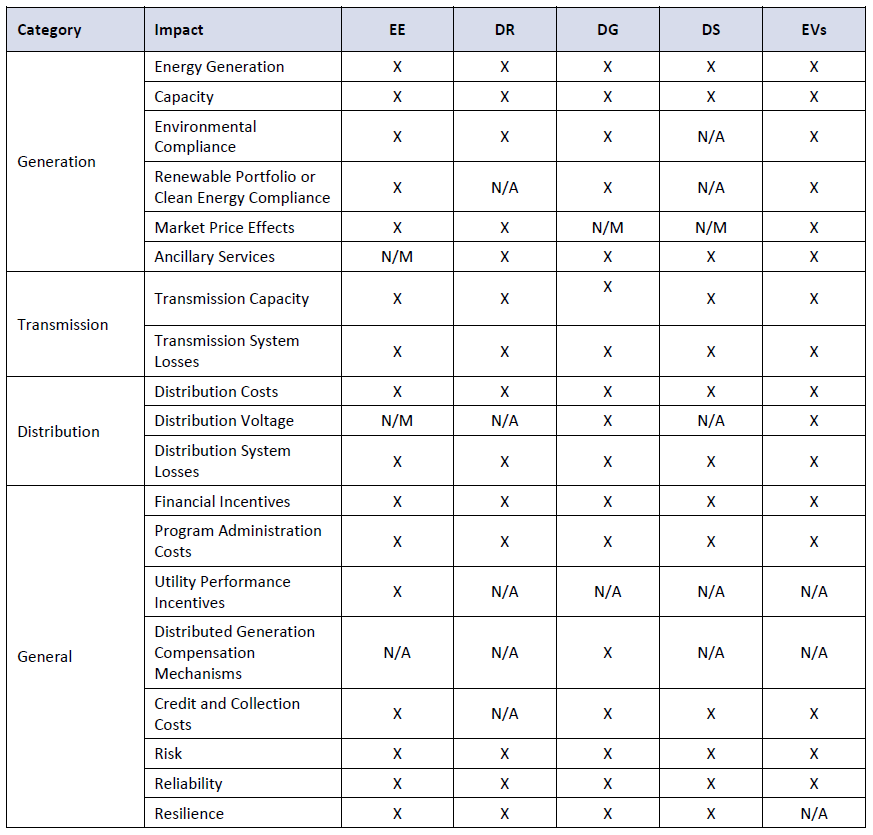States using the NSPM: Washington
(Continued from NESP Quarterly February 23, 2023)
The table below lays out the NSPM 5-step process and the associated workshop series and topics, illustrating specific Washington priorities. The first two workshops provided an overview of the NSPM process and served as a forum for stakeholders to discuss applicable WA policy goals, relevant impacts, and current utility BCA practices. During the third workshop, stakeholders reviewed and discussed current utility BCA practice for treatment of utility and non-utility system impacts and identified which impacts should be included in a primary BCA test.
Synapse Energy Economics incorporated feedback from workshops 1-3 to develop a draft straw proposal with a recommended “WA Test” for UTC Staff and other stakeholder review. Synapse presented this proposal and an example application of the WA Test during the fourth workshop.

Key aspects of the proposed WA Test include adhering to the NSPM core principles, such as aligning with WA’s applicable policies, ensuring symmetrical treatment of costs and benefits, accounting for relevant impacts (even if difficult to quantify), and avoiding double counting of any impacts.
Importantly, the straw proposal demonstrates how a primary WA Test would apply across different DERs, where not all impacts are relevant (N/A) or material (N/M) to each DER (or use case). Table 8 from the straw proposal (below) shows how the full range of utility system impacts should be part of the WA Test, but where depending on the DER, certain impacts may or may not be applicable. Similar tables are provided for Host Customer and Societal Impacts.

Next Steps:
The fifth UTC workshop provided a forum for the intervenors to ask clarifying questions and provide feedback on the straw proposal. Synapse also described how to account for energy equity as a complementary analysis to BCA. With energy equity as a top policy priority for the state, Synapse is providing technical assistance to WA UTC (via LBNL) to assist with addressing distributional equity analysis (see newsletter information on new DEA project).
Following the last workshop, UTC staff issued a notice of opportunity for written comments on various aspects of the straw proposal and proposed test. Its notice included over 20 questions asking intervenors to comment on the following range of issues:
- Whether changes are needed to current BCA practice in WA to ensure consistent evaluation of DERs, and if so, whether a JST is necessary to align with the Commission’s policy goals.
- General feedback on utility system impacts (electric and gas), and questions regarding specific definitions for and accounting for environmental compliance and renewable portfolio impacts.
- General feedback on non-utility system impacts, including Other Fuels, Host Customer Impacts and Societal Impacts.
- Treatment of highly impacted communities or vulnerable populations and associated impacts as a separate category relative to low-income customers.
- Definitions for applicable societal impacts, including GHG emissions, Other Environmental, Public Health and Energy Security impacts.
- Treatment of Risk, Reliability and Resilience, and appropriate definitions and relevance to utility system, host customer and societal impacts.
- Application of the WA Test, and whether it should be formal or informal.
- Value of a Phase 2 process to address methodologies for quantifying DER impacts (using the NESP’s Methods, Tools & Resources Handbook); best process for addressing Phase 2 issues.
Formal intervenor comments were due on the straw proposal January 18, 2023. UTC staff are reviewing comments with a determination and/or next steps expected this spring. All docket and workshop meeting materials are posted to the WA UTC website for Docket UE-210804.

